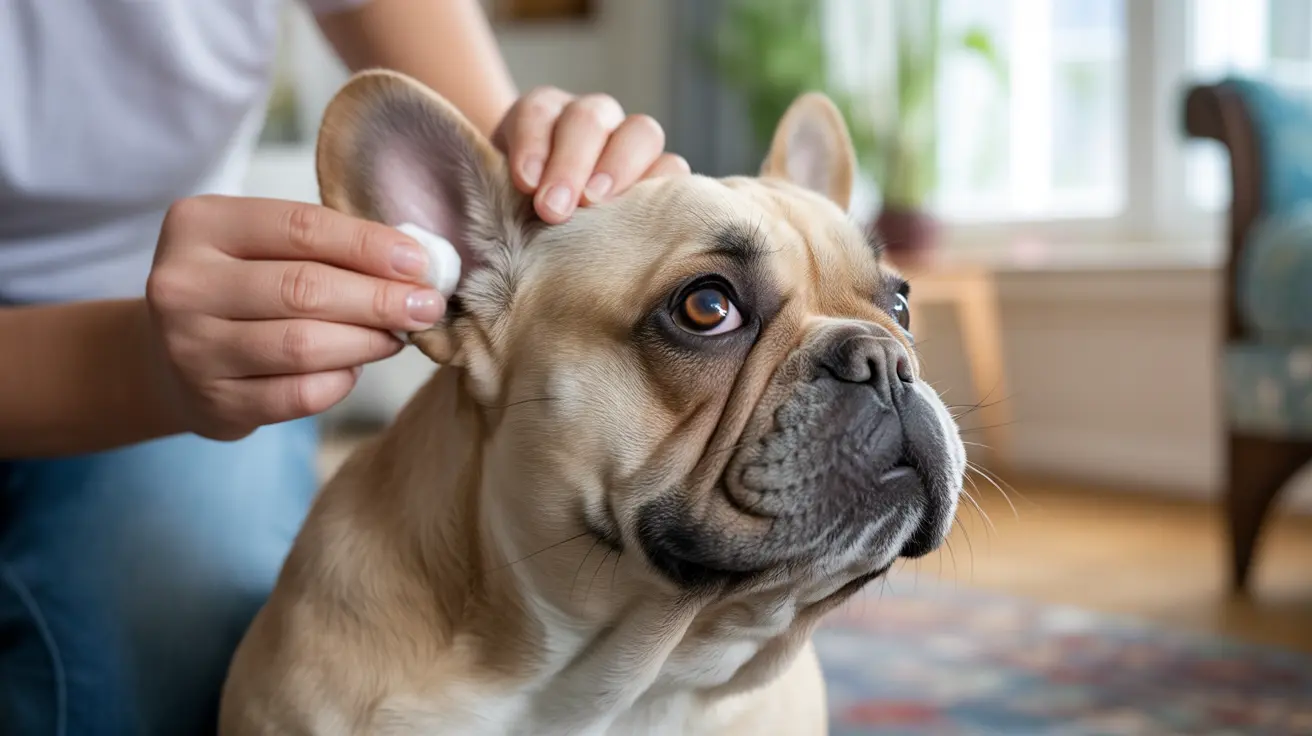If you've noticed your dog constantly scratching their ears or shaking their head, you're likely dealing with a case of dog ear itching. This common condition can cause significant discomfort for our canine companions and requires proper attention and care. Understanding how to relieve dog ear itching effectively is crucial for maintaining your pet's health and happiness.
In this comprehensive guide, we'll explore the various causes of ear itching in dogs, identify key symptoms, and provide proven solutions to help your furry friend find relief. Whether the issue stems from infections, allergies, or other underlying causes, you'll learn the steps needed to address this uncomfortable condition.
Common Causes of Dog Ear Itching
Infections and Parasites
Bacterial and yeast infections are among the most frequent causes of ear itching in dogs. These infections often develop in dogs with floppy ears, as the covered ear canal creates a warm, moist environment perfect for microbial growth. Ear mites, though more common in puppies, can also cause intense itching and irritation.
Allergies and Environmental Factors
Many dogs suffer from ear itching due to allergies, whether environmental or food-related. Pollen, dust, and certain food ingredients can trigger allergic reactions that manifest as ear irritation. Some breeds are particularly susceptible to these sensitivities, requiring special attention to their ear health.
Signs Your Dog Needs Attention
Watch for these warning signs that indicate your dog's ear itching requires treatment:
- Excessive scratching or pawing at ears
- Frequent head shaking
- Redness or swelling around the ear canal
- Unusual odor from the ears
- Dark or colored discharge
- Sensitivity when ears are touched
Professional Treatment Options
While some cases of ear itching can be managed at home, certain situations require veterinary care. Your vet may prescribe medicated ear drops, oral antibiotics, or anti-inflammatory medications depending on the underlying cause. Never use human medications in your dog's ears without veterinary approval.
Home Care and Prevention
Regular ear maintenance can help prevent itching and discomfort:
- Clean ears regularly with vet-approved solutions
- Keep ear canals dry after swimming or bathing
- Monitor for early signs of irritation
- Maintain a consistent grooming schedule
- Address allergies through proper diet and environmental management
Frequently Asked Questions
What are the most common causes of itchy ears in dogs?
The most common causes include bacterial and yeast infections, ear mites, allergies (both environmental and food-related), excessive wax buildup, and anatomical factors, especially in breeds with floppy ears.
How can I relieve my dog's ear itching at home?
You can provide relief through regular cleaning with veterinary-approved ear cleaners, keeping ears dry, and following your vet's recommended treatment plan. However, always get a proper diagnosis before starting any treatment.
What are the signs that my dog has an ear infection, and how should I treat it?
Signs include redness, swelling, discharge, odor, and increased scratching or head shaking. Treatment should always be guided by a veterinarian and typically involves medicated ear drops or oral medications.
Can allergies cause itchy ears in dogs, and how do I manage them?
Yes, allergies are a common cause of ear itching. Management involves identifying and avoiding triggers, maintaining good ear hygiene, and possibly using prescribed antihistamines or other medications as recommended by your vet.
How often should I clean my dog's ears to prevent itching and infections?
The frequency depends on your dog's breed and individual needs. Generally, cleaning every 1-2 weeks is appropriate for most dogs, while breeds prone to ear problems may need more frequent cleaning. Always consult your veterinarian for personalized recommendations.
Conclusion
Understanding how to relieve dog ear itching is essential for every pet parent. While home care and prevention are important, remember that persistent ear problems require professional veterinary attention. By staying vigilant and addressing issues promptly, you can help ensure your dog's ear health and overall well-being.






